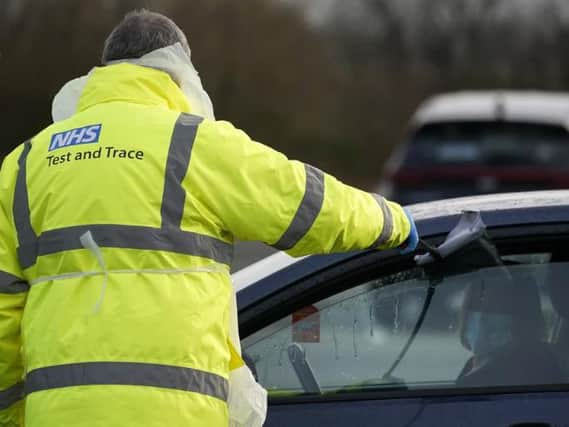Number of 'Yorkshire variant' Covid-19 cases in the UK passes 100


Public Health England said the variant, known as VUI-21MAY-01 or AV.1, remains under investigation and it is not currently being treated as a variant of concern.
In a statement, Public Health England said: “There is currently no evidence that this variant causes more severe disease or renders the vaccines currently deployed any less effective.”
Advertisement
Hide AdAdvertisement
Hide AdIt was discovered by scientists from the University of Sheffield when they were carrying out routine surveillance sequencing on nose and throat swabs taken at hospitals in Sheffield in April and May.
Matthew Parker, a bioinformatician involved with the sequencing, said Public Health England was alerted because the variant has 10 spike mutations in total and three of those are found in other variants of concern.
He added: “They're doing lab studies now to see if it has any effect on the virus itself and whether it makes it more transmissible or more severe.”
Public Health England states 101 confirmed cases of VUI-21MAY-01 had been recorded in the UK by May 26, up from 49 on May 19.
Advertisement
Hide AdAdvertisement
Hide AdThe latest figures also show no one who was found to have been infected with the variant had died by May 25.
The dominant variant in the UK is the Kent variant (B.1.1.7), but there are growing concerns about B.1.617.2, which is also known as the Indian variant.
Public Health England states 6,959 confirmed cases of the Indian variant have now been recorded in the UK, after another 3,535 were detected over the last week.
In a statement, it said Bolton, Bedford and Blackburn with Darwen are the worst affected areas and there is now evidence to suggest it is likely to be more transmissible than the dominant Kent variant (B.1.1.7).
Advertisement
Hide AdAdvertisement
Hide AdIt adds: “In some affected areas, hospitalisations are rising. Hospital attendances and admissions are predominantly in unvaccinated individuals, highlighting how crucial it is that people in these areas come forward to receive vaccination.”
There are 63 confirmed cases in Kirklees, where public health experts and NHS staff began carrying out door-to-door testing in two of the worst affected areas this week and offering vaccines to everyone over 18.
Dr Jenny Harries, Chief Executive, UK Health Security Agency, said: “With cases of the variant first identified in India continuing to rise in some areas, we are urging people to be very cautious and follow the guidance on hygiene, face coverings, social distancing and meeting outdoors.
“We now know that getting both vaccine doses gives a high degree of protection against this variant and we urge everyone to have the vaccine when the NHS invites you.
Advertisement
Hide AdAdvertisement
Hide Ad“Please follow the public health advice and make sure that you remain careful, work from home if you can, meet people outside where possible and remember ‘hands, face, space, fresh air’ at all times.
“This is the best way to protect yourself and your loved ones from this variant.”